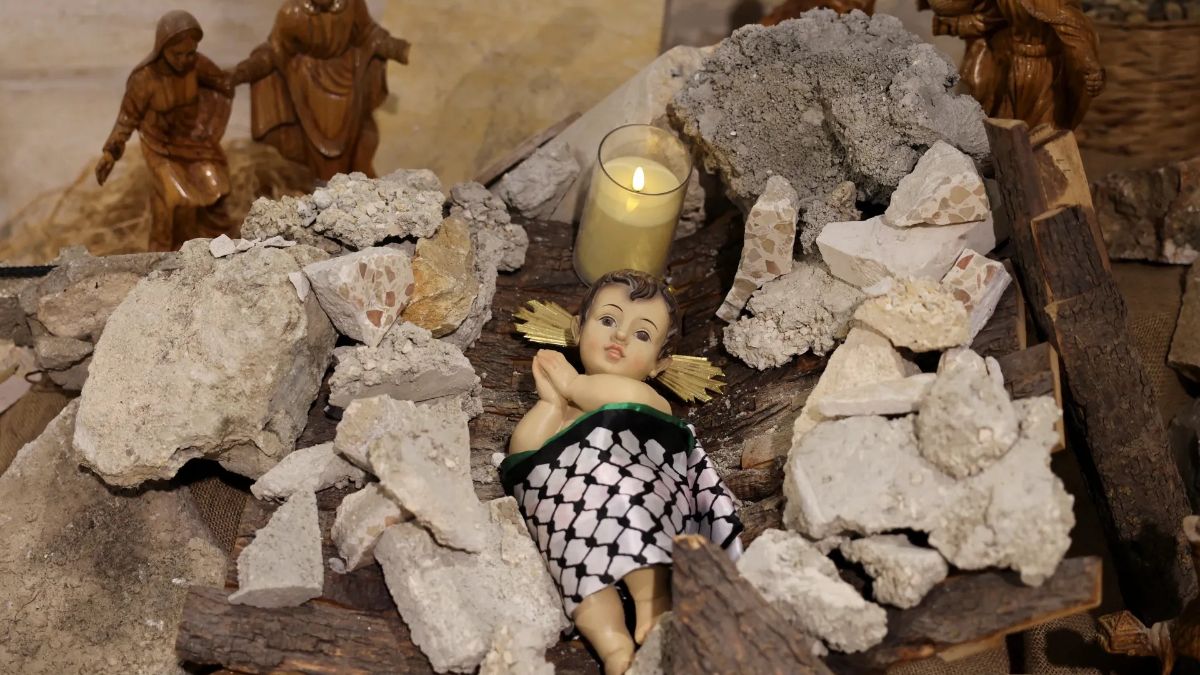Anointed for What?
The Spirit of the Lord is upon me, because he has anointed me to bring good news to the poor. He has sent me to proclaim release to the captives and recovery of sight to the blind, to let the oppressed go free, to proclaim the year of the Lord's favor.
Luke 4:14-21
January 22, 2016, Words By: Kris Rocke, Image By:
Last week we witnessed Jesus’ first miracle (water becomes wine). It ends well. This week we hear Jesus’ first sermon. It ends horribly.
His text is Isaiah 61:1-2a. His sermon is electric. It charges the crowd with a confusing current of wonderment and fierce anger. In the end, they drive him out of town to throw him off a cliff. That’s a tough first sermon.
I think about this when I consider that the Street Psalms Community anointed me with these very same words at my ordination. I have anointed many leaders throughout our network with these words. I pray these words daily as a reminder of my anointing. They were traced on my forehead with oil and they are written on my heart and the heart of the Street Psalms Community. Of course, the words are ten sizes too big for my soul, but they are so graceful and true that I will happily spend an eternity growing into them.
A Balm to the Soul
Isaiah’s words are balm to the soul, but it’s what Jesus doesn’t say that turns the screw. He doesn’t finish the quotation from Isaiah. Jesus leaves off the bit about announcing “The day of vengeance of our Lord”(Is. 61:2b). This could not have been an oversight. The gathering was stunned, which is why all the eyes of the congregation were “fixed on him” (v. 20). At one level, it warmed their hearts and they were “amazed at the gracious words” (v.22). But Jesus’ selective reading of the text and his sermon illustrations of two outsiders upon whom God’s favor rests (widow at Zerephath in Sidon and Naaman the Leper from Syria) ultimately filled the crowd with rage. They drove Jesus out of town to the edge of a cliff.
It reminds us of Leviticus 16 when, on the Day of Atonement, the high priest would lay his hands on the head of a scapegoat (in effect, anointing the scapegoat with the sins of the community and the vengeance of God). The goat was then driven out of town to the edge of the cliff while it was jeered and mocked by the community. Ultimately, it was forced to jump to its death, taking with it the sins of the community, presumably all this under the approving (and vengeful) eye of God.
Living without Scapegoats
Jesus’ sermon turns Leviticus on its head along with the religious establishment. It is we who want vengeance, not God. It is we who want scapegoats, not God. Jesus comes to show us how to live without scapegoats. Heck, he becomes the goat so we can finally see what we’ve been doing in God’s name – persecuting God.
So, how do we know when the Spirit of the Lord is upon us?
The Spirit of the Lord is upon us whenever we bring good news to the poor, proclaim release to the captives and recovery of sight to the blind, and let the oppressed go free. The Spirit of the Lord is upon us whenever we proclaim the year of the Lord’s favor (Jubilee) for ALL, friends and foe, insider and outsider, until there are no more scapegoats, none!
Perhaps this is why Pope Francis declared this a year of Jubilee – a year of mercy. Now, that is an anointing that will set creation ablaze with love.
Kris Rocke
Executive Director
Street Psalms



